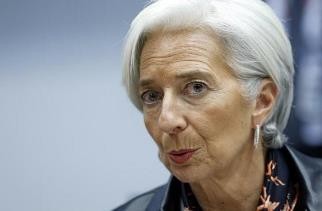The Chinese government said on Tuesday, Dec. 1, that it is prepared to take possible risks arising from the renminbi’s inclusion in the IMF's reserve currencies basket, China Daily reported.
The announcement came following the IMF's decision on Monday, Nov. 30, to include the Chinese currency in the special drawing rights (SDR) basket, which will give the renminbi the third-highest weighting, or 10.92 percent, after the U.S. dollar and the euro.
Economists said that the move would likely result in more fluctuations in exchange rates and volatile cross-border capital flows, which will also lead to a further opening of the Chinese financial market.
"We are ready for the inclusion," Yi Gang, deputy governor of the People's Bank of China, the central bank, said at a news briefing.
Yi added that China will need a transitional period to continue its foreign exchange reform aimed at building a market-oriented regime without government intervention, or a "clean float."
"We are able to keep the renminbi's exchange rate stable at a reasonable level," Yi said as he vowed to prevent unexpected capital flight that may lead to a systemic financial crisis.
The IMF said that the renminbi will be included in the SDR basket after it met all criteria.
According to the IMF, the decision will take effect on Oct. 1 next year to enable the continued smooth functioning of SDR-related operations and to allow sufficient lead time for adjustments.
The report said that the move will result in the reduction of the U.S. dollar's weighting in the basket from 41.90 percent to 41.73 percent, the euro's from 37.40 percent to 30.93 percent, the Japanese yen from 9.4 percent to 8.33 percent, and the British pound from 11.3 percent to 8.09 percent.
The IMF's Executive Board reviews the composition of the basket every five years to ensure that the basket reflects the relative importance of currencies in the global trading and financial systems.
China's central bank has undertaken a series of reform measures this year, which include the adoption of a market-oriented daily exchange rate-fixing regime; allowing foreign central banks and international financial organizations to access the onshore bond and foreign exchange markets; and setting freer interest rates.
"The renminbi's inclusion in the SDR is a clear indication of the reforms that have been implemented and will continue to be implemented, and is a clear, stronger representation of the global economy," IMF Managing Director Christine Lagarde said in Washington on Monday.




























